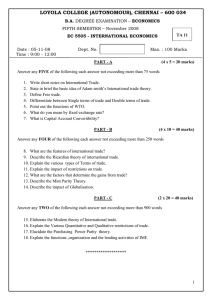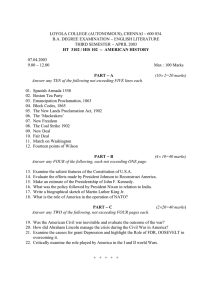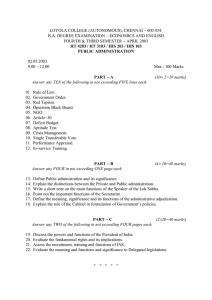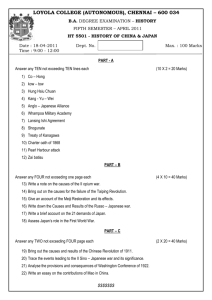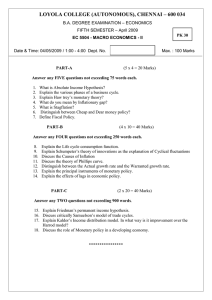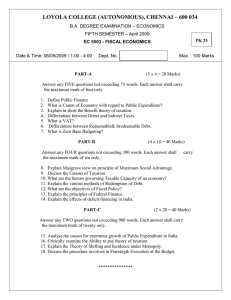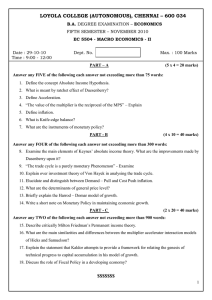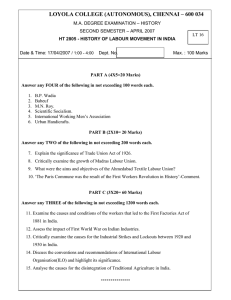LOYOLA COLLEGE (AUTONOMOUS), CHENNAI – 600 034
advertisement
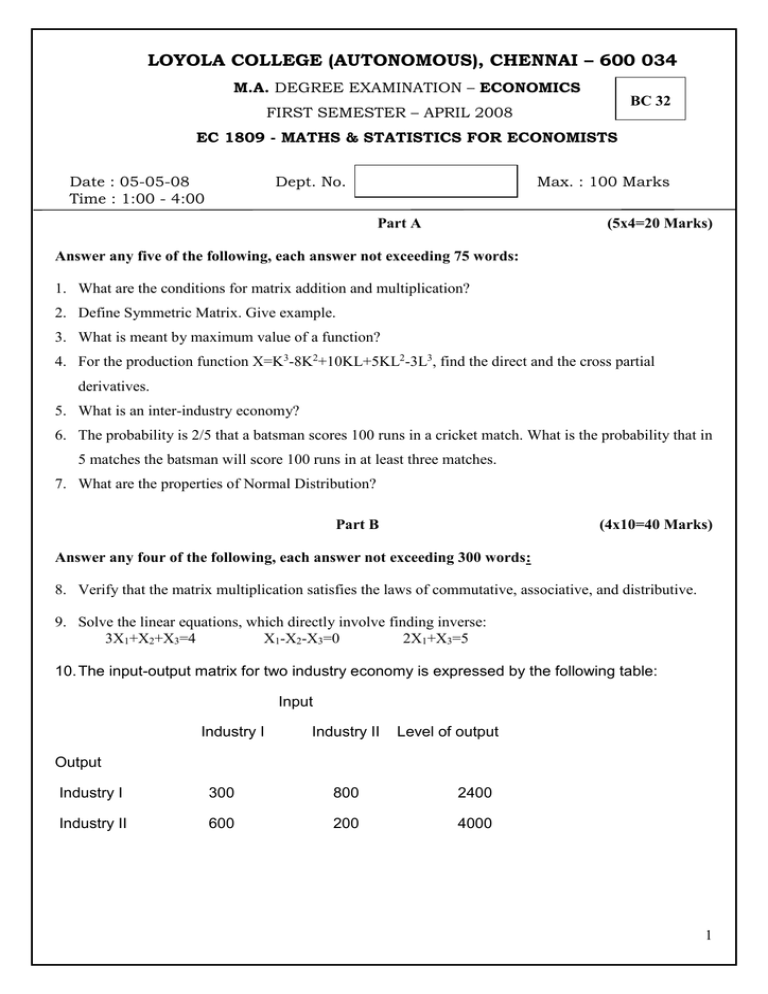
LOYOLA COLLEGE (AUTONOMOUS), CHENNAI – 600 034 M.A. DEGREE EXAMINATION – ECONOMICS BC 32 FIRST SEMESTER – APRIL 2008 EC 1809 - MATHS & STATISTICS FOR ECONOMISTS Date : 05-05-08 Time : 1:00 - 4:00 Dept. No. Max. : 100 Marks Part A (5x4=20 Marks) Answer any five of the following, each answer not exceeding 75 words: 1. What are the conditions for matrix addition and multiplication? 2. Define Symmetric Matrix. Give example. 3. What is meant by maximum value of a function? 4. For the production function X=K3-8K2+10KL+5KL2-3L3, find the direct and the cross partial derivatives. 5. What is an inter-industry economy? 6. The probability is 2/5 that a batsman scores 100 runs in a cricket match. What is the probability that in 5 matches the batsman will score 100 runs in at least three matches. 7. What are the properties of Normal Distribution? Part B (4x10=40 Marks) Answer any four of the following, each answer not exceeding 300 words: 8. Verify that the matrix multiplication satisfies the laws of commutative, associative, and distributive. 9. Solve the linear equations, which directly involve finding inverse: 3X1+X2+X3=4 X1-X2-X3=0 2X1+X3=5 10. The input-output matrix for two industry economy is expressed by the following table: Input Industry I Industry II Level of output Output Industry I 300 800 2400 Industry II 600 200 4000 1 a) Determine the level of final demand, which can be met by the two industries. b) Determine the matrix of technology coefficient for the two-industry economy. 11. A firm has a demand curve given by the function 2Q-160+3P=0. The average cost curve of the firm is given by the relationship AC-3Q3=63+5/Q-18Q. Find the level of output, which minimizes total revenue. 12. Find the first-order and second –order derivatives for the following function: X2-Y2 Z= log ---------X2+Y2 13. Bring out the differences between correlation analysis and regression analysis. 14. Explain the method of least – squares. Part C (2x20=40 Marks) Answer any two the following, each answer not exceeding 900 words: 15. Given the following demand and supply functions for products X,Y, Z, find the equilibrium prices for the three products, using Cramer’s rule. Qdx=8-2Px+3Py-Pz Qdy=4-4Py+Px+3Pz Qdz=6-Pz+3Px+3Py Qsx=10 Qsy=2Py+2 Qsz=8+Pz 16. Show that the inverse of the Leontief Matrix A= 0.1 0.3 0.1 0 0.2 0.2 0 0 0.3 is 1.11 0.42 0.28 (I-A) = 0 1.25 0.36 0 0 1.43 17. From the following, obtain the two regression lines: X: 18 19 20 21 22 23 24 25 26 27 Y: 17 17 18 18 19 19 19 20 21 22 18. A manufacturer of swimming pools has the following production function: -1 40Q=1800-4(x-12)2-3(y-20)2 where Q is the number of pools built over the year, and x and y are the amount of labour and materials used. The price of the pool is Rs. 500, and the cost per unit of the inputs are(under perfect competition) are Rs. 200 for labour, and Rs. 150, for materials. Using the method of Lagrange determine the optimum quantities of the two inputs. 2
